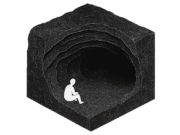With new U.S. tariffs in effect, Shein and Temu prices are climbing—but will this curb our appetite for ultra-cheap trends?
Fast Fashion Just Got Taxed—and It’s Hitting Your Cart
As of April 25, 2025, U.S. shoppers are finally feeling the price squeeze on their favorite fast fashion hauls. A steep new 145% tariff on Chinese imports—paired with the closure of the “de minimis” loophole that used to let sub-$800 packages glide through customs tax-free—is slapping serious fees on once-cheap looks. That $18 Temu dress? Now it lands closer to $44.68 after the new charges.
Why? Because while Shein technically claims Singapore and Temu hangs its hat in Boston, both run entirely on China-centric pipelines—sourcing, producing, and shipping ultra-trendy micro-garments at warp speed straight to U.S. doorsteps. That breakneck model just hit a brick wall of trade policy, and shoppers are footing the bill.
This isn’t just fast fashion. It’s fast dopamine.
Scroll, click, ship. No trying-on, no thinking, just vibes.
A Shein-sized problem
Shein, the poster child of turbo-speed trend churn, has built a multi-billion-dollar empire by dropping thousands of new styles a day—yes, a day—and selling them for shockingly low prices. This isn’t just fast fashion. It’s fast dopamine. Scroll, click, ship. No trying-on, no thinking, just vibes.
Temu, a newer player that exploded on the scene with Super Bowl ads and “shop like a billionaire” slogans, operates in a similar space: ultra-low prices, aggressive discounting, and a UI that feels like TikTok had a baby with QVC.
But these platforms aren’t just cutting corners on price—they’re cutting them on labor, environment, and ethics too. Many garments are produced in conditions that make “sweatshop” sound quaint. And when clothes are this cheap, we treat them like trash: the average American throws away over 80 pounds of clothing a year.
Do we even want fast fashion to die?
Here’s the wild twist: even as people say they care about sustainability, they’re still clicking buy. The average Gen Z shopper says they want more ethical brands—but also buys more clothes than any generation before them.
We want to be good, but we also want to go viral.
There’s something intoxicating about the instant gratification of fast fashion: You see it, you buy it, it arrives in 3 days, you wear it once on Instagram. Who cares if it falls apart in the wash? On to the next.
So if tariffs don’t kill fast fashion, what will? Maybe nothing. Maybe it just mutates?










































